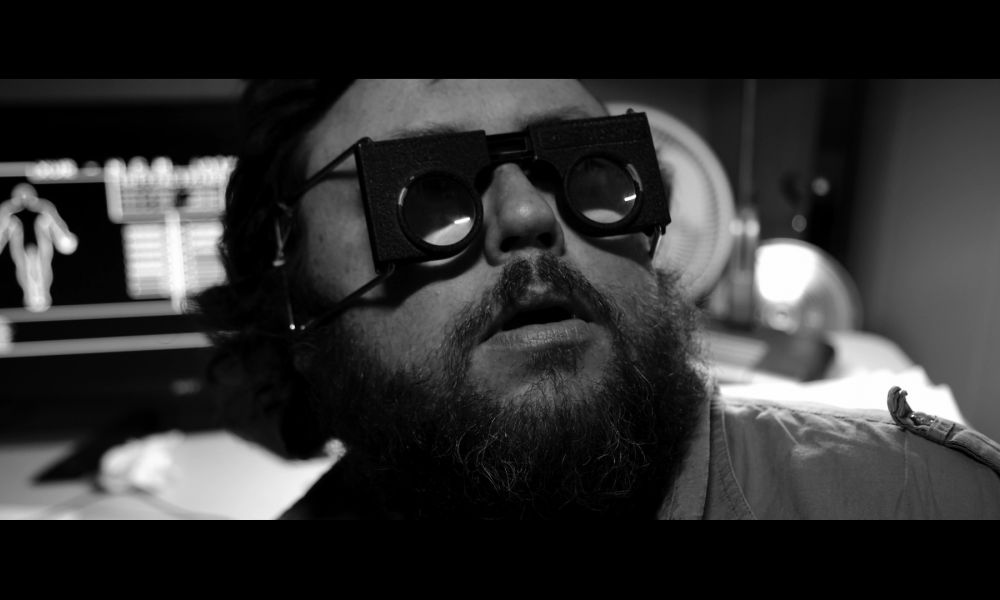The ability to feel empathy for other human beings is a component of humanity that’s been brought up quite a bit in recent years, especially in a world where some of those in power seem ill-equipped to do so. (I’m not naming names! But, yeah, them.) It’s said that it’s more difficult for those who have been raised with a certain amount of privilege to put themselves in the proverbial mindset of someone who isn’t as advantaged. I mean, why should they? What’s the goal of trying to understand where other people are coming from? Sure, “being human and having a desire to treat others with the same decency you’d like to be treated with,” but when you’re already being treated well, learning and utilizing empathy (especially for those you don’t have a direct relationship with) takes actual effort, and having the capacity for emotional effort isn’t everyone has learned.

But what if you could save yourself the effort and really put yourself into the life of someone less advantaged through virtual reality? What if you could really adjust the difficulty level on your life above the lowest setting, with the safe knowledge that it was only temporary?
This is the basis for the premise of EMPATHY, INC., a New York-lensed sci-fi thriller from director Yedidya Gorsetman, which made its world premiere as part of Chicago’s Cinepocalypse Film Festival. With echoes of PI and PRIMER, EMPATHY, INC. aims to explore its high (and timely) concept on a minimal budget, setting up a situation rife with potential for both clever twists and cultural context.
Joel (Zack Robidas) is an investor in the tech industry on the brink of striking it rich through the sale of the company he invested in, which was to revolutionize the clean water industry. All of this falls apart, however, when it turns out the data that proved the process works had been faked, resulting in Joel and his wife Jessica (Kathy Searle) moving in with Kathy’s parents in their suburban New York home.

Joel soon runs into an old friend who’s been working on the creation of a new technology – a VR experience that would enable wealthy patrons to feel what it’s like to actually have the life, temporarily, of a less-monied, less-privileged individual. (The reasons that the clientele would want to do this, interestingly, are presented not as potential empathy lessons for the long term, but to make them feel better about their own lives, because they’re sad. It’s depressing to think that that would be the tactic to take, but honestly, it’s much more likely to succeed financially.) With the idea of getting his father-in-law to invest his retirement savings, Joel tests out the experience, enveloping him in entanglements that he may not manage to escape from.
I always try to make it a point to review films not by comparing them to the movie that I’d wanted to see in my head, but by taking them as a natural progression of the story that the filmmakers set out to tell, and evaluating it again what I gather they’re trying to do. In EMPATHY, INC., however, that’s a bit difficult, as the concept itself is so rife with potential that it becomes increasingly difficult not to want the film to veer back into exploring the ideas that it started off with. It’s not that EMPATHY, INC. ever becomes a bad film – the black and white cinematography is solid, the performances are very good, and the plot takes some interesting turns – but it quickly ends up losing sight of the clever ideas it first introduced, instead choosing to become a relatively straightforward high-concept thriller.
The film’s opening act certainly starts things out in the right direction, as Joel is introduced as a potentially-sympathetic character (he could have been portrayed as a venture capitalist who was hoisted by his own ego, but the filmmakers choose a less obvious route) who quickly becomes difficult to like due to his need to jump back into high finance with money that isn’t his. A white, straight male afforded a second chance after already bungling a first chance, he’s a character rich with possibility of needing to experience empathy, especially when countered with his actress wife, who battles with her parents, a pair of empathy-free individuals who just want something to be “done” about the homeless due to their offensiveness to the eyes.
And yet, despite all of this potential, it’s never quite clear why Joel becomes so enamored with the VR process – is it the VR itself? Does he enjoy feeling like another person? Is he learning to empathize with others due to going under the process? Joel does end up being nice to a homeless person, but as the character is never completely detestable, it’s unclear if this is character growth or a one-time deal. In addition, as Joel is the only character we see going through the process for reasons of “enhancing” empathy, we’re never given the opportunity to see how it may have worked for others, including his in-laws, who seem set up to get involved with a much-need empathy creation process.
Instead, EMPATHY, INC. becomes a twisting thriller, with identities being revealed and some much more sinister work at play. Here, too, it touches on a few compellingly cruel touches involving the need for power without ever fully exploring them. The final act is engaging, well-paced, and features some clever twists – it’s just almost a completely different film from what the first act sets up.
EMPATHY, INC. ends up being a decent enough sci-fi influenced thriller, but the concept had the makings for a fantastic low-budget variant of the likes of ANOTHER EARTH, COHERENCE, ADVENTAGEOUS or a really good Black Mirror episode. Instead, it settles for being like, well, a lot of other sci-fi thrillers on Netflix that have the same cover art of some person with plugs in their head, or a fairly mediocre Black Mirror episode. I’d be more than curious as to what the filmmakers come up with next, but I can’t help but feel like they may have been wiser to stick with the concept they’d set up and exploring that rather than dismissing it in lieu of genre thrills.
- JIM WYNORSKI RETURNS WITH THE CREATURE FEATURE ‘GILA’ - May 1, 2014
Tags: Cinepocalypse 2018



No Comments